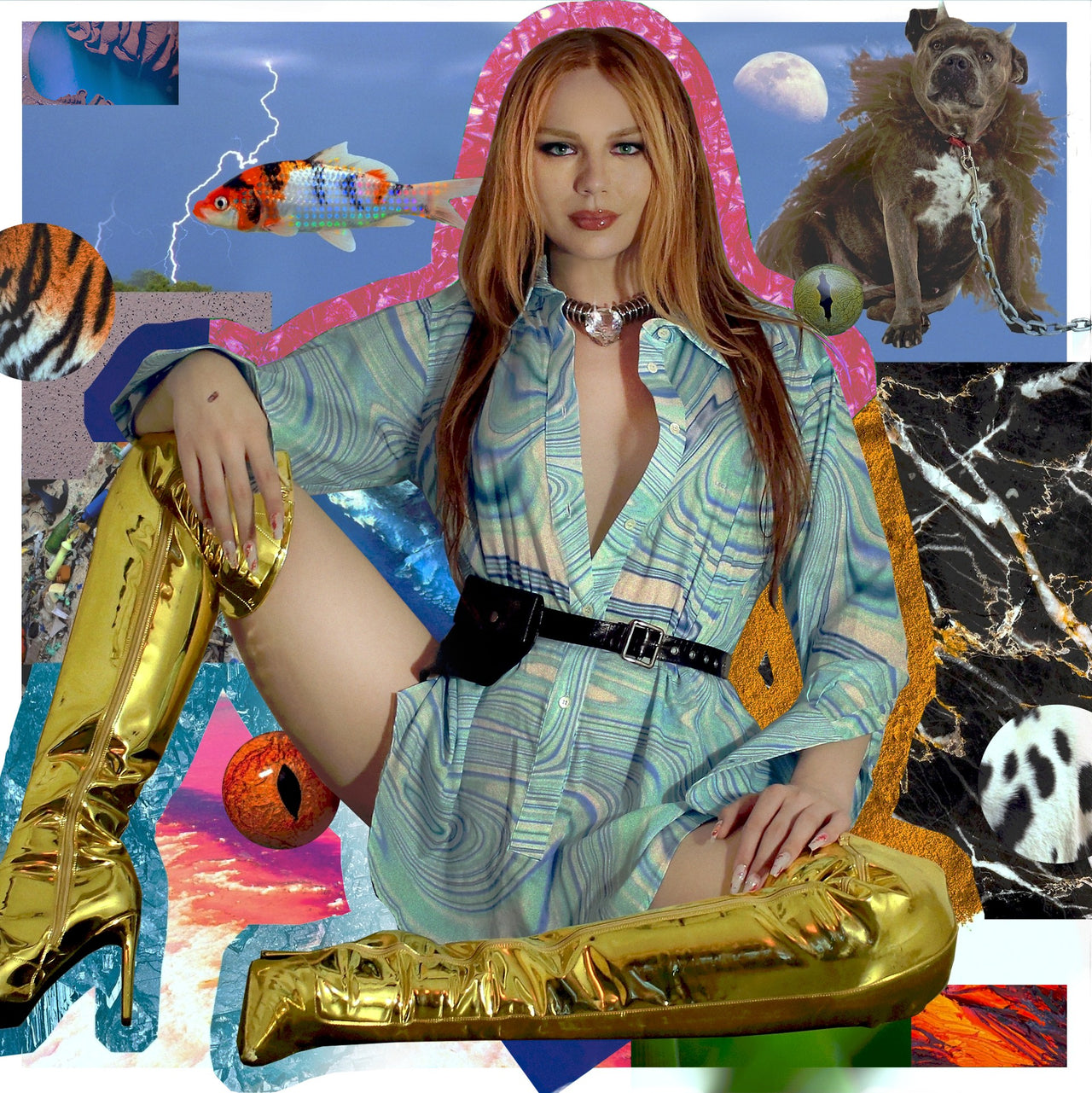
Macy Rodman
Macy Rodman follows the organic path, an intuition guiding her artistic pursuits--which, to a true artist like Macy, are parallel with pursuits of life.
Macy’s third record Unbelievable Animals, chopped down to 12 songs from 20, is therefore a turning point, one that leaves her more vulnerable than ever before. The stakes are higher because it is real in the way her previous work has not been, where personas emerge in order to analyze and get over the breakup that left her reeling. It becomes a balancing act of finding a continuity with her previous work and using this project as the vehicle to recover from the baffling heartbreak, not to mention the conditions of the pandemic. It is a personal risk, but a logical next step for a delightfully unpredictable artist.
The massive, sugary, propulsive sound of the record--confession and heartbreak set to club-ready beats with ‘90s radio rock inflections--is decidedly not the sound of quarantine or isolation. It is the opposite, the sound of reemergence, of rebirth, the return to the dance floor. Liz Phair, Faith Hill, Cher, Madonna, and more heroes of that era spiritually inhabit its tracks, where Slick pop production and the sneering punk attitudes of Marianne Faithful and PJ Harvey mingle at the ‘90s New York nightclub. Do not confuse this punk affect with an angst of the teenaged variety--Macy simply deeply doesn’t care (an apathy of empowerment reflected by another tattoo near her wrist, “IDK&IDC”.) The influences are so vast and numerous--Spandau Ballet, Wheatus, Nelly Furtado, Hunx and his Punx, MGMT, Janet Jackson, and so on--it will ultimately fall to the listener to tease out the nuances of the songwriting. But that’s the joy of Macy’s work, the constant turmoil of self discovery that accompanies such a disconnected world, where anyone could see themselves reflected--if only they turn away from the world’s endless hall-of-mirrors long enough to take a look.
-Dale Eisinger